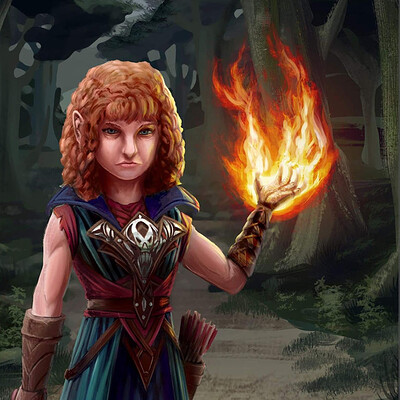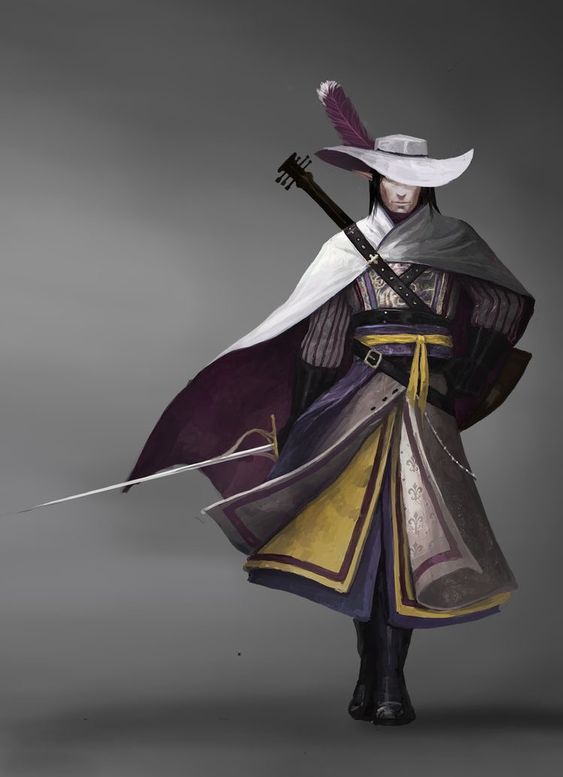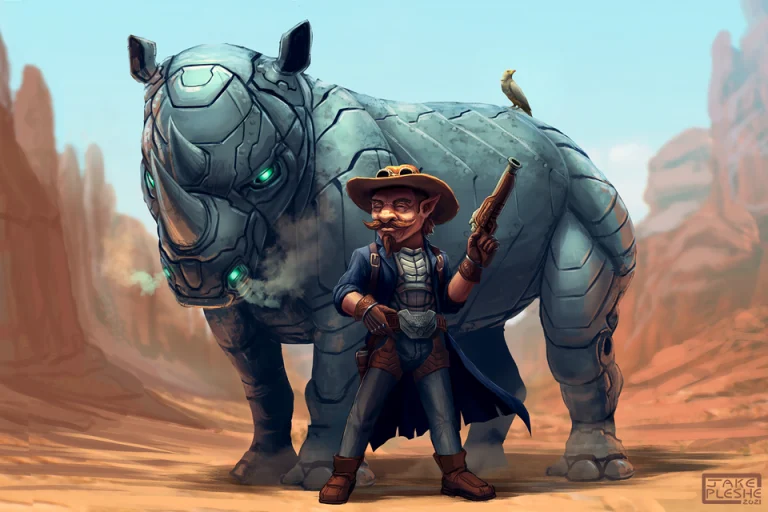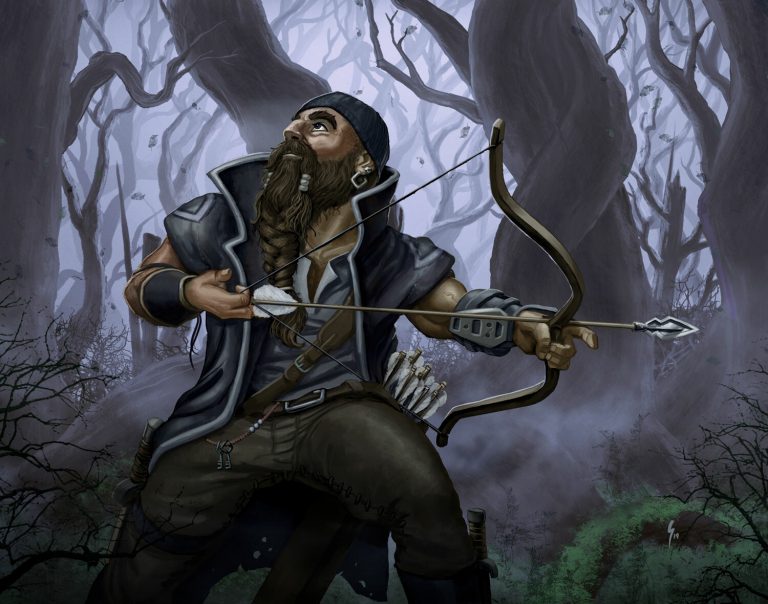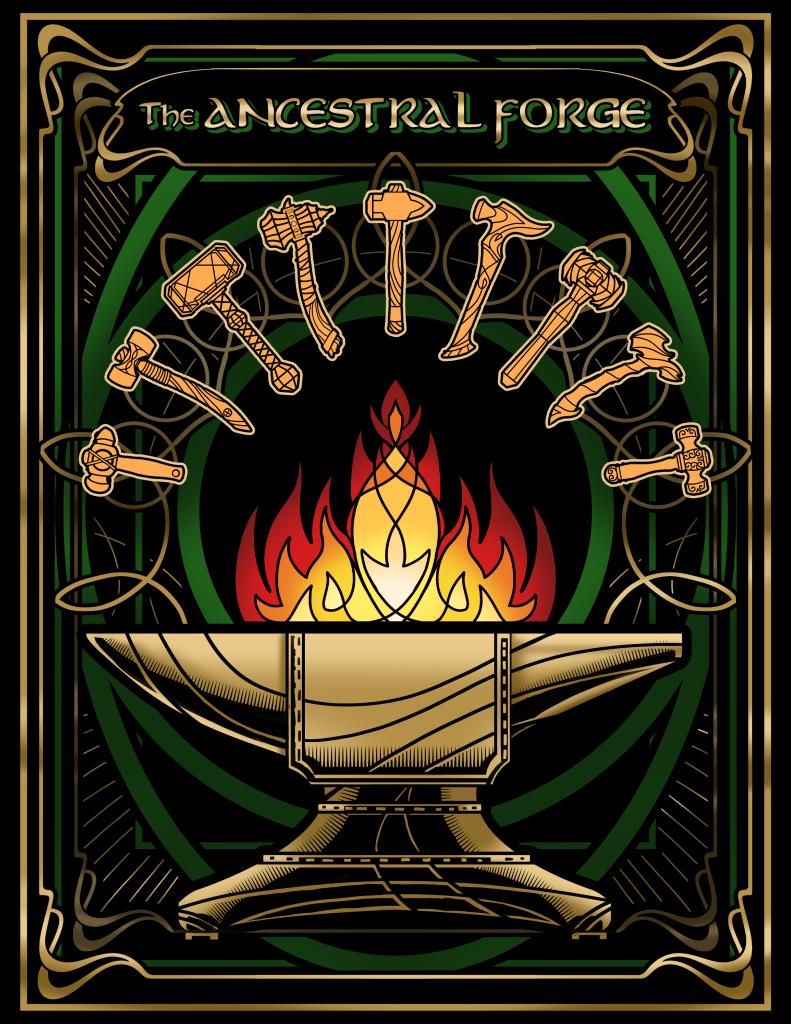D&D 5e: Horizon Walker Ranger Guide
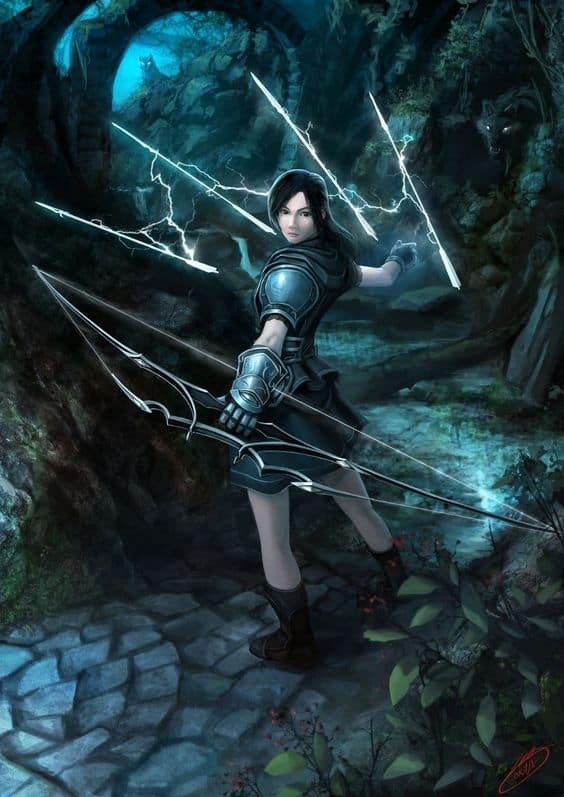
D&D 5e: Horizon Walker Ranger Guide
Role in the Party
Ahead lies a shimmering rent in the fabric of reality. A vertical wall of fluid, like a waterfall frozen mid-stream. The party follows their Ranger closer. It was they that found it, after all. Some unerring instinct guiding them closer.
With utmost care, the party enters the glade, but it’s not careful enough. Elemental force takes form, frozen fragments of energy that shrug off the swords of the Fighter and the magical assault of the mage. But not the Ranger. No, their arrows seem to shimmer in the air, tearing clear through the elemental, simply removing chunks of it from existence.
Shepherds of the liminal spaces, Horizon Walkers guard against incursions from the planes, good and bad. Effective warriors with a splash of magic, they’re as comfortable fighting from the front lines as they are hanging back with spell and bow.
This guide breaks down the subclass, some good ways to build it, feat and skill choices, and more.
Epic
Good
Meh
Bad
The Horizon Walker Ranger subclass is found in Xanathar’s Guide to Everything. Click here to pick up your own copy of Xanathar’s Guide to Everything!
Horizon Walker Features
Horizon Walker Magic: The Horizon Walker gains the spells below at the stated levels. These are always available and don’t take up any of the Ranger’s known spells.
The list is decent, though it is very themed around extraplanar entities, just like the rest of the subclass.
3rd: Protection from Evil and Good: Against the enemies that the Horizon Walker wants to fight, this is a very powerful layer of defense that can make a party member almost untouchable.
5th: Misty Step: Misty Step is simply one of the best defensive and mobility spells in the game. A bonus action 30ft teleport is useful in so many situations.
9th: Haste: Haste is a fantastic spell in general, but less good for you. The main casters have had this for four levels and losing concentration hurts. If you’re an archer, this is green. If not, it drops down to yellow.
13th: Banishment: If it sticks, (and targeting CHA saves, it just might, despite your lower spell DCs) Banishment is a powerful debuff that removes an enemy from the fight. Or outright sends them back to their home plane, if they’re not on it.
17th: Teleportation Circle: Someone should have this, and it solves traveling problems in high-level campaigns, for what is at this level essentially zero cost.
Detect Portal: From level 3, the Horizon Walker is tuned to detect interplanar interruptions. As an action, they can detect the direction and distance to the closest planar portal.
Maybe. Sort of. They can detect it if it’s within 1 mile’s distance. And can only do this once per rest.
Realistically, this sucks. The range is restrictively short for no reason, and it can only be used once per rest, so if you fail to detect a portal, whoops, time to burn an hour out of your day sitting down and having a snack.
It also doesn’t scale at all in distance or uses, which would fix many of the issues here, as well as just being incredibly restrictive. Many campaigns do not need to ever search for hidden planar portals. Overall, just disappointing, even in campaigns where planar intervention is a big deal.
Planar Warrior: Also at 3, the Horizon Walker can spend a bonus action to pick an enemy within 30 feet. The next attack that the character hits them with deals an extra 1d8 force damage, and all the damage of the attack becomes force damage.
It’s a boosted Hunter’s Mark that doesn’t require a spell slot, and can freely be used every single turn. Plus, shifting the damage to Force, which is resisted by almost nothing in the game, is a great way to ignore damage resistances.
The damage even scales up to 2d8 bonus damage at 11th level. Overall, reliable, effective, and something you’re going to use again and again.
Ethereal Step: As a bonus action, the Horizon Walker can shift into the edge of the Ethereal plane, as the Etherealness spell, but only until the end of the turn.
But often, that’s enough. This lets the Ranger walk clean through enemies, walls, and other obstacles, ignore traps and environmental damage and even move vertically at the cost of double the normal movement distance.
The ability also comes back on any rest, making it incredibly difficult to prevent this character from getting where they need to be.
Distant Strike: From 11th level, the Horizon Walker’s mastery of the planes is such that they can shift in between individual attacks.
When taking the attack action, the Horizon Walker can teleport 10 feet before every attack they make. Not only is this fantastic mobility that allows you to outmaneuver your enemies with almost no counters, this explicitly adds to your movement range, so you’ve just gained a minimum of 20ft of unrestricted movement.
There’s another bonus here, too. If the Horizon Walker uses their attacks against two different targets, they gain another attack that can be used against a third target, entirely for free.
While this is less likely to happen often, when it does, you’ll be glad of it, as it’s a literal 50% DPS increase out of nowhere. That’s incredible, just like the rest of this ability.
Spectral Defense: From 15th level, when hit by an attack, the Horizon Walker can spend their reaction to gain resistance against all of that attack’s damage.
So this is essentially the Rogue’s Uncanny Dodge, except on a significantly tougher class. While it might not be the most interesting ability in the game, this is very very good and contributes towards making the Horizon Walker that much tankier, especially against big single targets like boss monsters.
Strengths
Despite being themed as a subclass around dealing with planar beings, the Horizon Walker has a broad toolbox that’s surprisingly good at dealing with all kinds of threats.
Firstly, it deals solid damage without having to rely on spell slots, gaining an ability that’s a direct replacement for one of the class’s most used spells, Hunter’s Mark. The shift in damage type to Force means that the character is always going to deal relevant damage, and this scales up with every single damage boost you get.
Rangers are primarily martial characters, so they’re obviously good at front line combat. Your main role in a combat encounter is always going to be damage first, utility and control second, and the subclass delivers on that, especially as it levels up and starts to gain some serious mobility.
Built right, the Horizon Walker could comfortably act as a melee bruiser, wading in and taking hits, as an assassin that skirts around the edges of the fight before focusing down a key target, or as an archer that stands at the rear and pours arrows into the enemy.
Ranger spells are a grab bag of buffs, combat spells, and random utility. The Ranger doesn’t get many daily spell slots or spells known, but they do get enough to meaningfully contribute to all of the important parts of an adventuring day.
Outside of combat, the Ranger is a fantastic scout, adept at finding enemy encounters, traps, and secrets that try to stay hidden. They can be fantastically stealthy, supplementing skill use with a little magic, and can happily contribute to social encounters as well, if built right.
Weaknesses
Probably the single biggest issue about the Horizon Walker is how focused it is around a single theme. I know, how dare it stick to the design philosophy of the subclass!
But seriously, planar travel and planar enemies aren’t guaranteed to come up in many campaigns, which can switch off several of the subclass’s abilities and spells. That’s a shame, especially since the rest of what’s on offer here is incredible fun.
What this means is, while you don’t need planar travel in your campaign to enjoy the Horizon Walker, it is worth chatting with your GM to see if it’s going to come up, before settling on the subclass.
As a Ranger, the class is also a natural generalist. Expect to be decent at everything, with some skill use, spellcasting, combat prowess, and social push. But don’t expect to excel at anything, either. Fighters will be more fightery, and spellcasters are always going to outperform you in the magical sphere.
Best Race Options
Owlin: Permanent flight, stealth proficiency, and Darkvision are all exceptional things for an archer ranger, and the archery style of combat synergizes perfectly with the bonus damage from the subclass.
Air/Water Genasi: Planar exploration requires planar creations. Both of these Genasi subtypes have good stat distributions, as well as exciting abilities like breathing underwater, and some useful elemental magical options.
Simic Hybrid: Darkvision and some other benefits, including the ability to pick from a small list of tailored buffs, many of which are useful for planar travel, like a swim speed and breathing water.
Choosing the Right Skills
The Ranger doesn’t get many skills, but it can be very good at what it chooses to take.
Perception is the king of skills, and the Horizon Walker has enough WIS to be good at it. Survival is a Ranger staple but isn’t necessary, and neither is Stealth, though both are very handy to have in the right situation.
The Horizon Walker might also want to take Arcana. They’re probably not going to be good at it, but it’s the skill that governs all of the creatures they’re built to take down. Not knowing about them is a bit silly.
Other Knowledge skills are handy to have if the build allows. As is Insight, because it builds from WIS and is the best option for social interaction that the class has.
Fitting Feats
Sharpshooter: If you’re fighting at range, you take this feat. No ifs, no buts. It’s as close to essential as anything in the game.
Ignore cover, ignore range penalties, and gain the ability to take a hit penalty to deal almost double damage. This is so powerful. Take it. Seriously.
Great Weapon Master: The Ranger’s fighting style choices don’t directly lean towards big weapons, but the class abilities do. The Horizon Walker wants to hit enemies with big single swings and doesn’t like using its bonus action to attack unless it has to (poor two-weapon fighting,) meaning that a greatsword or polearm is the natural choice for the melee Horizon Walker.
Eldritch Adept: This feat unlocks the option of an invocation. We’d lean towards things that help with understanding and tracking down your enemies like freely casting Detect Magic, or being able to just read all writing. But the list is long and full of incredibly useful features.
Optimal Backgrounds
Urchin: Twin thiefy skills, and two useful tool kits, including Thief’s Tools, which you’ll probably be good at.
Folk Hero: Two decent, if slightly niche skills are fine, Land Vehicles and an Artisan’s Tool are excellent flavors, and might just come in handy too.
Feylost: Thematic elements, two good skills, a musical instrument for fun, and a language.
Multiclassing Options
Battle Master Fighter: Lose some spell power in exchange for a lot of melee prowess. The Combat Maneuvers of the Battle Master only require a 3 level dip and offer a ton of flexibility. Retaliatory attacks, status effects, temporary HP, and even skill boosts, it’s all here.
Add another fighting style, plus the Fighter’s free healing and Action Surge for a dip that’s a solid way to wedge more martial power into your martial class.
Twilight Cleric: Twilight Cleric offers so much at low levels, and can help shift the class into a more supportive role.
Heavy armor is a good start, as is a bonus to Initiative, Cleric spellcasting, and the best Darkvision in the game that can also be shared with the party.
But it’s the Channel Divinity: Twilight Sanctuary that’s incredibly powerful, here. A 30ft radius sphere that stacks refreshing temporary HP on that party, and can also remove charm and fear effects, which some planar creatures love to throw out, is a fantastic ability for a backline archer to hand out to their allies.
Scout Rogue: The base Rogue kit is already nice, especially Sneak Attack and Cunning Action, as well as adding a lot of skill utility.
The Scout turns the Ranger into even more of a Ranger, with a reactionary half-movement when enemies end their turns close to the character, and Expertise in the Nature and Survival skills.
Would I recommend playing a Horizon Walker Ranger?
Yes. Double yes if you’re playing a campaign full of planar entities.
But even without that, the base abilities of the subclass, save for the few things that are purely focused around planar travel, are all flavorful, fun, and effective. A good spell list and basic combat ability are your bread and butter, and as you level, the class suddenly becomes a lot more interesting, adding teleportation and ghost walking into the mix.
Is this the strongest Ranger subclass? No, it isn’t. But is it a good subclass, and one that’s a worthy addition to any party, as well as fun to play? It absolutely is!



